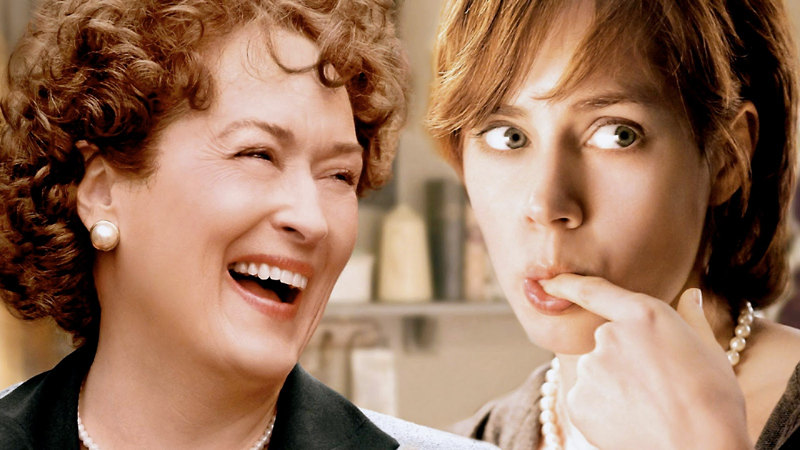“Because even though success is a reality, its effects are temporary. You get hungry, even though you’ve just eaten.” – Don Draper, “Mad Men,” Season Five
Late in season five of the enthralling “Mad Men” series, Don Draper (Jon Hamm) passionately discusses an account with a client. His eyes show hunger for getting the new business, and he maintains eye contact with the client. He is sitting with an upright posture indicative of his confidence, conviction, and exemplary smooth-talking skills that have made him a force in the advertising world. He presents his arguments by defining how much market share makes a company successful, after all. Is 50% market share good enough? Or should the company go after 80% of the share? But the crux of Draper’s argument in this episode (“Commissions and Fees”) is when people in the advertising world have an unflinching professional appetite for creating a difference in a company’s market share, the company should not be satisfied with the existing market share. Don is resolute, convincing, energetic, and pleasant to listen to, as he has always been in the previous seasons of the series. Indeed, it is the manner with which the writers have developed Don’s image and many of his professional associates that makes this series truly remarkable in every way. But, does this season capture the aura of the 60’s advertising world of charismatic “Mad Men” that is as entertaining, magnetic, and memorable as the past seasons?
In my review of the fourth season of “Mad Men,” I said it would be interesting to see how writers carry on with their existing story template. The existing structure, after all, has worked for the last four seasons, so why change it now? The writers, in the past, have developed story arcs for significant characters by mixing both professional and personal elements. There is a defined elegance to the series; we see characters’ affairs, their domestic crises, and how they battle in the competitive advertising world, always working hard for their clients’ accounts. But, unfortunately, the fifth season is a letdown when compared to the earlier seasons. The main problem: the entire thing feels familiar and predictable. We know these characters too well by now, and we know at some point they will be tangled in extramarital affairs that will eventually have an impact on their lives. Unlike the fourth season, this season places an emphasis on personal lives, and some of the personal storylines, like the one involving Pete, go nowhere.
What “Mad Men” did brilliantly earlier was to portray the fiery side of advertising, but the excitement–for the most part–is missing in this season. This is not to say that one does not see moments of corporate leadership from Don Draper, like his traditional motivational, coming-together speeches; it’s all here. The other aspect that made “Mad Men” captivating was the manner with which the steadfast clients were presented to us; some of them were tough nuts to crack, especially the memorable Connie Hilton from the third season. On the outside, there are grand dinners and splendid décor, but no client can match the professional intensity and stubbornness of Connie Hilton—not even the prestigious Jaguar client. Mostly, the interaction between the Sterling & Cooper workers and their clients lacks spark and edginess, especially when things stay too professional. In addition, pacing is a major issue in this season, as we see writers spending a lot of time in developing Don’s marriage to his new wife, Megan (Jessica Pare), as things start to roll only late in the season.
Maggie is the newest addition to this season, and her character juggles multiple careers. Initially, she works at Sterling & Cooper and develops a punchy line for the Heinz account that convinces Heinz to sign with the agency for their advertising campaign. But she quickly realizes that her talent is not in advertising when thinking of it as a long-term career path. She always wanted to be an actress and pursues her dream with dedication, even at the cost of displeasing Don and bringing tension to their marriage. On the domestic front, she knows her responsibility, but at times she comes across as demanding and unreasonable, although she is generally nice to people around her. Of course, with a calm Don around, things never get out of control.
Pete Campbell (Vincent Kartheiser) gets a face-lift in this edition, and that enhances his character further. We see him more competitive in getting new business accounts, and he constantly wants to make his voice heard in meeting with other partners. Overall, we see more of his business skills and less of his creative workmanship. He thinks he has grown professionally, which he has, but in front of Don, he is still a protégé learning new things. His personal life is a mess when he gets involved with a married woman. Uninterested in his domestic life, Peter finds solace in his affair, even when the cards are stacked against him. Don’s ex-wife, Betty (January Jones) is leading a happy life with Henry Francis (Christopher Stanley), but she is also dealing with her own personal issues. As such there is not much focus on her character. And finally, Joan’s (Christina Hendricks) character continues to project herself as a strong-willed, independent woman, managing the kid at home and her complex role at work.
Video:
Lionsgate transfers “Mad Men” to Blu-ray disc using an MPEG-4/AVC codec, the film presented in an aspect ratio of 1.78:1. The transfer is of similar quality as seen in the previous seasons. The styles of the 60’s are rendered beautifully, with solid blacks and vibrant colors. The detail is remarkable, and sharpness stays consistent. Skin tones appear realistic, and close-ups have good facial details. There is some inherit softness, but that is probably to capture the look of the 60’s. Overall, this is a splendid-looking transfer.
Audio:
We get a lossless 5.1 English DTS-HD Master Audio track. Being a dialogue-driven show, the show is primarily driven by the front channels, where the dialogue stays consistently clear and audible. There are hardly any dramatic moments in the show, yet the silent moments are presented reasonably well. Also, the show can be viewed in English and Spanish subtitles.
Extras:
First, there are eleven audio commentaries, each for a different episode. Up next, “Mad Men Say the Darndest Things” is a look at different writing styles. Next, “What is There to Love if Not the Enigma?” is a profile of artist Giorgio de Chirico that motivated some images in the show. Following this, “The Party of the Century” is an insight on Truman Capote. Next, “Scoring Mad Men: Themes of Season 5” is a look at the show’s musical score by bringing in the show’s composers to discuss their thoughts on the score and how they composed it. “Scoring Mad Men: Inside a Session” is an inside look on how composer David Carbonara creates a musical score for an episode. Finally, “The Uniform Time Act of 1966” provides history on daylight savings time.
Parting Thoughts:
The fifth season of “Mad Men” is in no way a bad season; it is just underwhelming when compared to past seasons. The performances are superb, and the characters are well developed and appear settled in their storylines. The subplots are present for main characters, and some of them fail to bring anything new to the story. The show represents a microcosm of the 50s’ and 60s’ era, and it continues to reproduce that era with perfection. Fans who have followed the series, however, may be mildly disappointed with this season.


